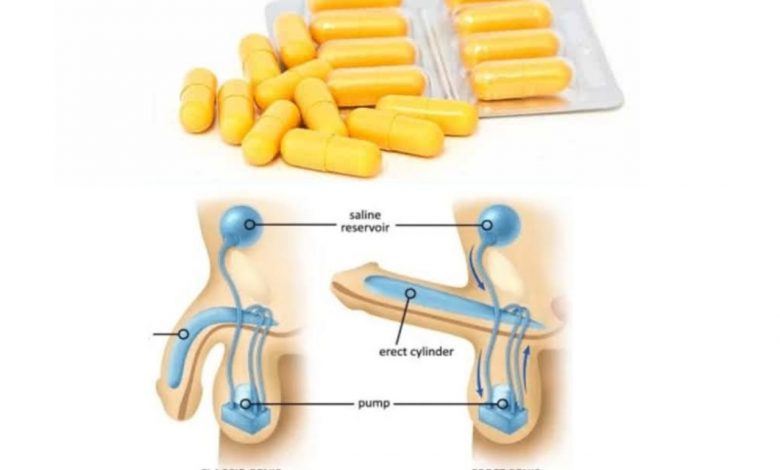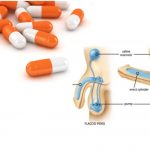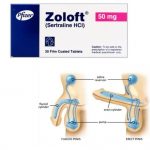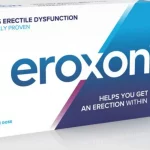Is Gabapentin Erectile Dysfunction Permanent?

Erectile dysfunction, also known as impotence is defined as difficulty getting and keeping an erection. It can be an embarrassing thing to talk about. It’s been reported that more than half of men between the ages of 40 and 70 experience some form of ED. So take comfort in knowing that you are not alone.
One reason erectile dysfunction becomes more common with age is that older men are more likely to be on some kind of medication. In fact, an estimated 25% of all ED is a side effect of drugs, according to the Harvard Special Health Report Erectile Dysfunction: How medication, lifestyle changes, and other therapies can help you conquer this vexing problem.
The most common types of medication that are linked to ED include antidepressants, anti-ulcer drugs, tranquilizers, and diuretics—which help the body get rid of sodium and water, and are used to treat heart failure, liver failure, and certain kidney disorders.
What is Gabapentin?
Gabapentin capsules, tablets, and oral solutions are used along with other medications to help control certain types of seizures in people who have epilepsy. Gabapentin capsules, tablets, and oral solutions are also used to relieve the pain of postherpetic neuralgia (PHN; the burning, stabbing pain or aches that may last for months or years after an attack of shingles). Gabapentin extended-release tablets (Horizant) are used to treat restless legs syndrome (RLS; a condition that causes discomfort in the legs and a strong urge to move the legs, especially at night and when sitting or lying down). Gabapentin is in a class of medications called anticonvulsants.
Gabapentin treats seizures by decreasing abnormal excitement in the brain. Gabapentin relieves the pain of PHN by changing the way the body senses pain. It is not known exactly how gabapentin works to treat restless legs syndrome.
Gabapentin is also sometimes used to relieve the pain of diabetic neuropathy (numbness or tingling due to nerve damage in people who have diabetes) and to treat and prevent hot flashes (sudden strong feelings of heat and sweating) in women who are being treated for breast cancer or who have experienced menopause (”change of life”, the end of monthly menstrual periods). Talk to your doctor about the risks of using this medication for your condition.
How should gabapentin be used?
Gabapentin comes as a capsule, a tablet, an extended-release (long-acting) tablet, and an oral solution (liquid) to take by mouth. Gabapentin capsules, tablets, and oral solutions are usually taken with a full glass of water (8 ounces [240 milliliters]), with or without food, three times a day.
These medications should be taken at evenly spaced times throughout the day and night; no more than 12 hours should pass between doses. The extended-release tablet (Horizant) is taken with food once daily at about 5 PM. Follow the directions on your prescription label carefully, and ask your doctor or pharmacist to explain any part you do not understand. Take gabapentin exactly as directed. Do not take more or less of it or take it more often than prescribed by your doctor.
Gabapentin extended-release tablets cannot be substituted for another type of gabapentin product. Be sure that you receive only the type of gabapentin that was prescribed by your doctor. Ask your pharmacist if you have any questions about the type of gabapentin you were given.
Swallow the extended-release tablets whole; do not cut, chew, or crush them.
If your doctor tells you to take one-half of a regular tablet as part of your dose, carefully split the tablet along the score mark. Use the other half-tablet as part of your next dose. Properly dispose of any half-tablets that you have not used within several days of breaking them.
If you are taking gabapentin to control seizures or PHN, your doctor will probably start you on a low dose of gabapentin and gradually increase your dose as needed to treat your condition. If you are taking gabapentin to treat PHN, tell your doctor if your symptoms do not improve during your treatment.
Gabapentin may help to control your condition but will not cure it. Continue to take gabapentin even if you feel well. Do not stop taking gabapentin without talking to your doctor, even if you experience side effects such as unusual changes in behavior or mood. If you suddenly stop taking gabapentin tablets, capsules, or oral solutions, you may experience withdrawal symptoms such as anxiety, difficulty falling asleep or staying asleep, nausea, pain, and sweating. If you are taking gabapentin to treat seizures and you suddenly stop taking the medication, you may experience seizures more often. Your doctor may decrease your dose gradually over at least a week.
Your doctor or pharmacist will give you the manufacturer’s patient information sheet (Medication Guide) when you begin treatment with gabapentin and each time you refill your prescription. Read the information carefully and ask your doctor or pharmacist if you have any questions.
Does gabapentin cause erectile dysfunction?
Yes, studies have reported that gabapentin even at low doses can cause sexual side effects including erectile dysfunction, ejaculatory dysfunction, loss of libido, and anorgasmia. Such sexual dysfunction is one of the major reasons for discontinuing the medication.
According to reports gabapentin also cause horniness. Several people on the gabapentin and impotence forum have reported that gabapentin makes them horny without much increase or decrease in libido. Taking gabapentin does not help with erectile dysfunction.
Is gabapentin erectile dysfunction permanent?
No, gabapentin-induced erectile dysfunction is not permanent, there are many different options for treating this, however, DO NOT STOP your medication without working with your primary care provider.
Generally, your doctor may recommend treatments that can enhance sexual performance while allowing a person to continue taking potentially life-saving or life-extending medications. Often, such treatments begin with making changes to a person’s routine. These include:
- adopting healthful eating habits
- avoiding using recreational drugs
- increasing daily exercise
- limiting or avoiding alcohol
- maintaining a healthful weight
- quitting smoking
- sleeping well
If gabapentin produces more pronounced sexual side effects at a particular time of the day, for example, within a few hours of taking it. Then your doctor may ask you to try scheduling sexual activity for the time when side effects are least bothersome or take gabapentin at a different time.
If these interventions fail, your doctor may switch you from gabapentin to another medication that is less likely to cause side effects like erectile dysfunction. There’s no firm rule about how or when to switch, so it’s important to follow your doctor’s guidance.
Does gabapentin increase testosterone?
No, studies have shown that in men, non-opioid medications like gabapentin do not have effects on the levels of testosterone. Instead of increasing or decreasing hormones, experts believe gabapentin act on the hypothalamus, the part of the brain that regulates body temperature to treat conditions like hot flushes.
Can I take Viagra while on gabapentin?
Although there are no known interactions between gabapentin and Viagra, do not take Viagra while on gabapentin without first discussing it with your doctor or healthcare provider.





